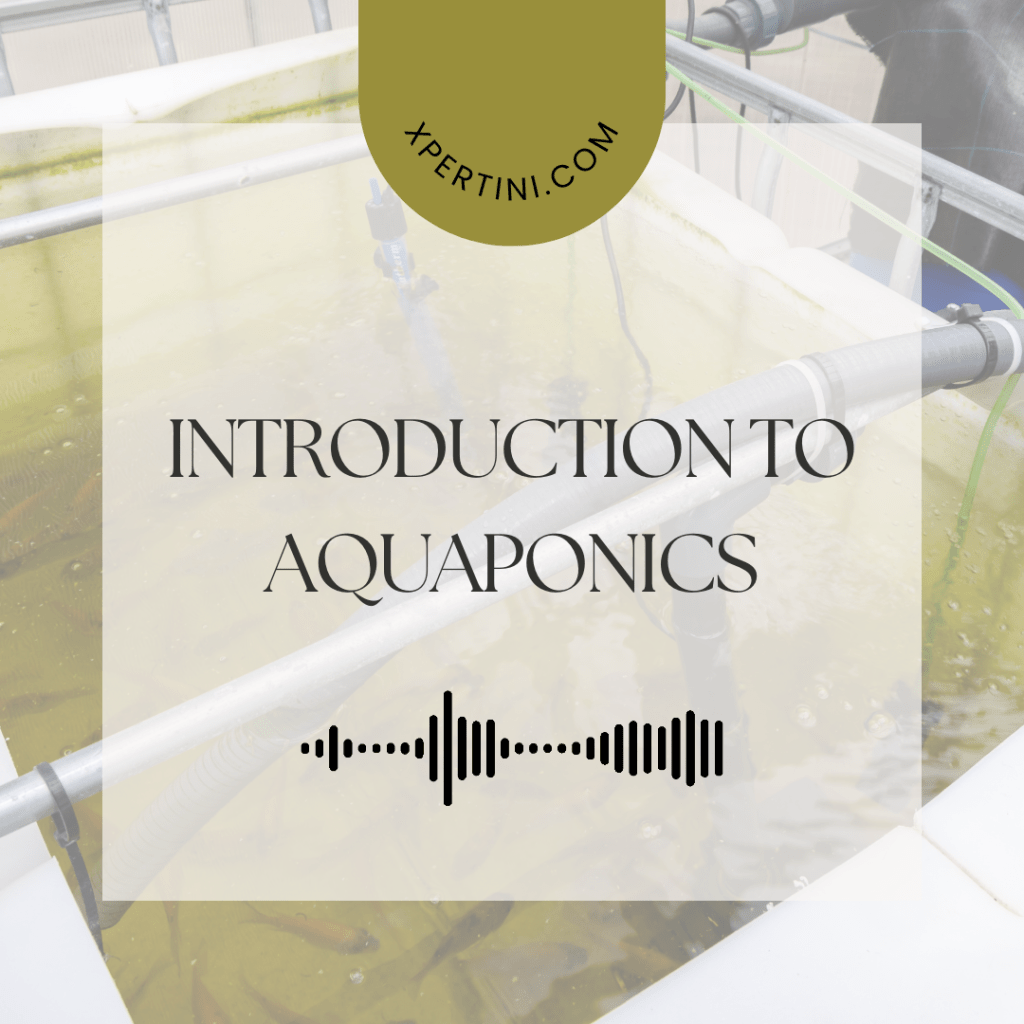Introduction to Aquaponics
Course Summary
A Comprehensive Course provides a detailed exploration of the field, seamlessly blending aquaculture and hydroponics to create sustainable, symbiotic ecosystems. In this course, learners delve into the foundational principles of aquaponics, uncovering the relationships between fish and plants in a controlled environment.
Beginning with an insightful Historical Perspective, the course traces the Evolution of Aquaponics, shedding light on Influential Figures who have shaped its development. Learners gain valuable insights into the historical milestones that laid the groundwork for contemporary aquaponic practices.
The journey progresses into Basic Principles, revealing the fundamentals of Aquaculture and Hydroponics essential for grasping the core concepts of aquaponics. Subsequently, the focus shifts to System Design and Construction, providing a detailed exploration of the Components of an Aquaponic System and the details of Building and Setting Up such systems.
Cultivation Techniques take center stage in the course, where learners discover the critical aspects of Plant Selection and Requirements, along with the diverse Fish Species suitable for aquaponic environments. Environmental and Economic Sustainability then takes the spotlight, exploring the Ecological Impact of Aquaponics and its Economic Viability amidst contemporary market trends.
The course addresses Troubleshooting and Problem-Solving, equipping learners with the skills to navigate Common Challenges in Aquaponics and implement effective Strategies for System Optimization. System Variations follow suit, revealing the solubilities of Different Aquaponic System Designs and their Applications.
In the penultimate lesson, Technology in Aquaponics unveils the Monitoring and Automation Tools pivotal for system efficiency, offering insights into the seamless integration of technology to enhance overall productivity.
Finally, the course culminates in a deep dive into Career Opportunities within aquaponics. Learners gain a comprehensive understanding of Job Roles, Entrepreneurial Paths, and current Industry Trends, paving the way for informed career choices in this burgeoning field.
Course Overview
This course provides a comprehensive introduction to the field of aquaponics, a sustainable and integrated farming system that combines aquaculture and hydroponics. Participants will gain a deep understanding of the principles, techniques, and applications of aquaponics, preparing them for a career in this innovative field or enhancing their existing knowledge.
Course Objectives
Understand the fundamental principles of aquaponics.
Develop skills in designing and managing aquaponic systems.
Explore the historical evolution and significance of aquaponics.
Gain practical knowledge in the cultivation of plants and fish in an integrated system.
Learn about the environmental and economic benefits of aquaponics.
Acquire problem-solving skills related to common challenges in aquaponic systems.
Familiarize with various aquaponic system designs and configurations.
Understand the role of technology in optimizing aquaponic processes.
Explore the potential for aquaponics in addressing food security challenges.
Identify diverse career opportunities in the field of aquaponics.
Course Outcomes
Articulate the basic principles underlying aquaponic systems.
Demonstrate the ability to design and construct a functional aquaponic system.
Analyze the historical development and evolution of aquaponics.
Assess the environmental and economic sustainability of aquaponic farming.
Demonstrate proficiency in cultivating plants within an aquaponic environment.
Identify and troubleshoot common challenges in aquaponic systems.
Evaluate different aquaponic system designs and their applications.
Integrate technology for monitoring and optimizing aquaponic processes.
Analyze the role of aquaponics in addressing food security issues.
Explore and evaluate diverse career opportunities within the aquaponics industry.
Course Audience
Individuals aspiring to pursue a career in aquaponics.
Farmers and agricultural professionals seeking to diversify their knowledge.
Students studying agriculture, environmental science, or related fields.
Entrepreneurs interested in sustainable and innovative farming practices.
Anyone passionate about contributing to sustainable food production.

